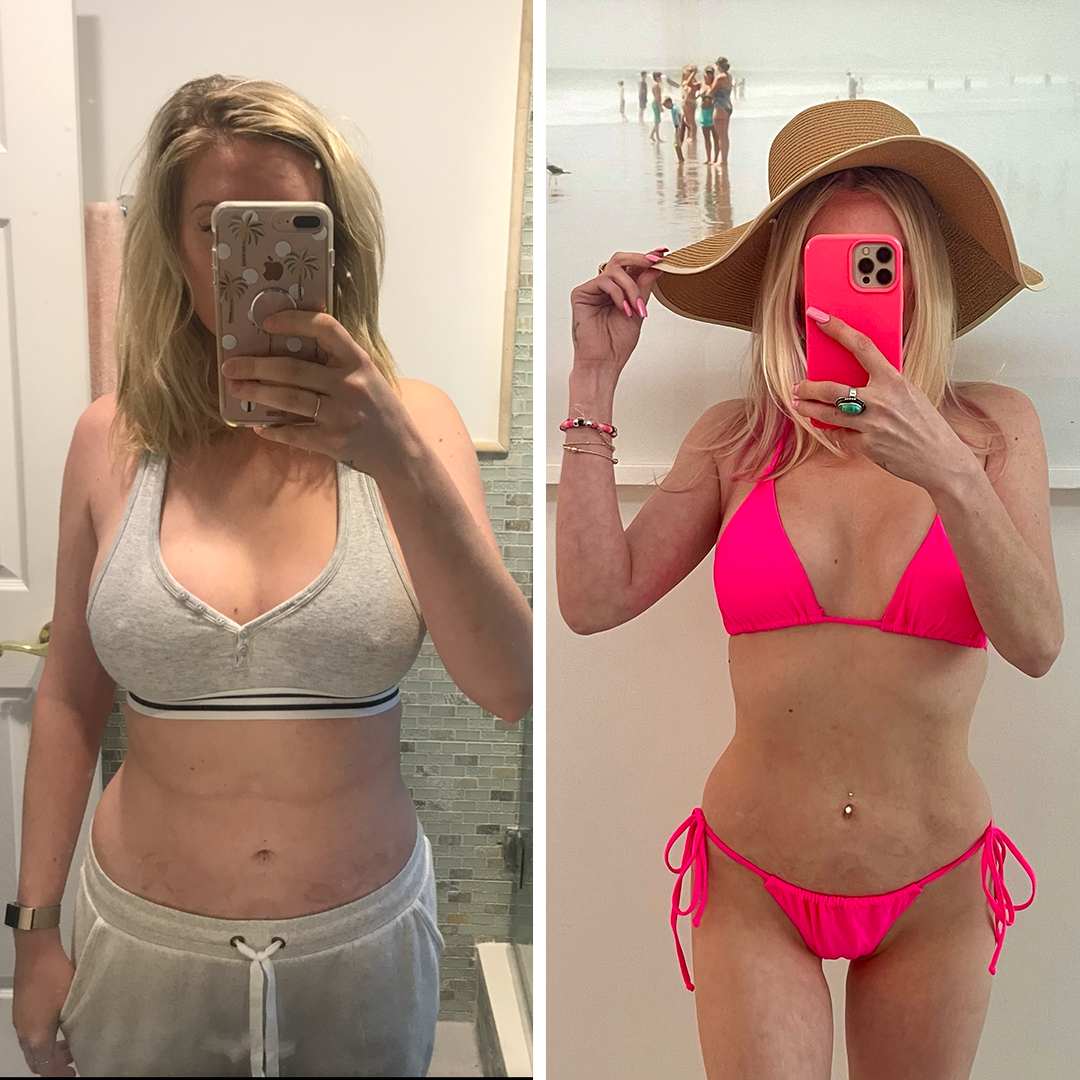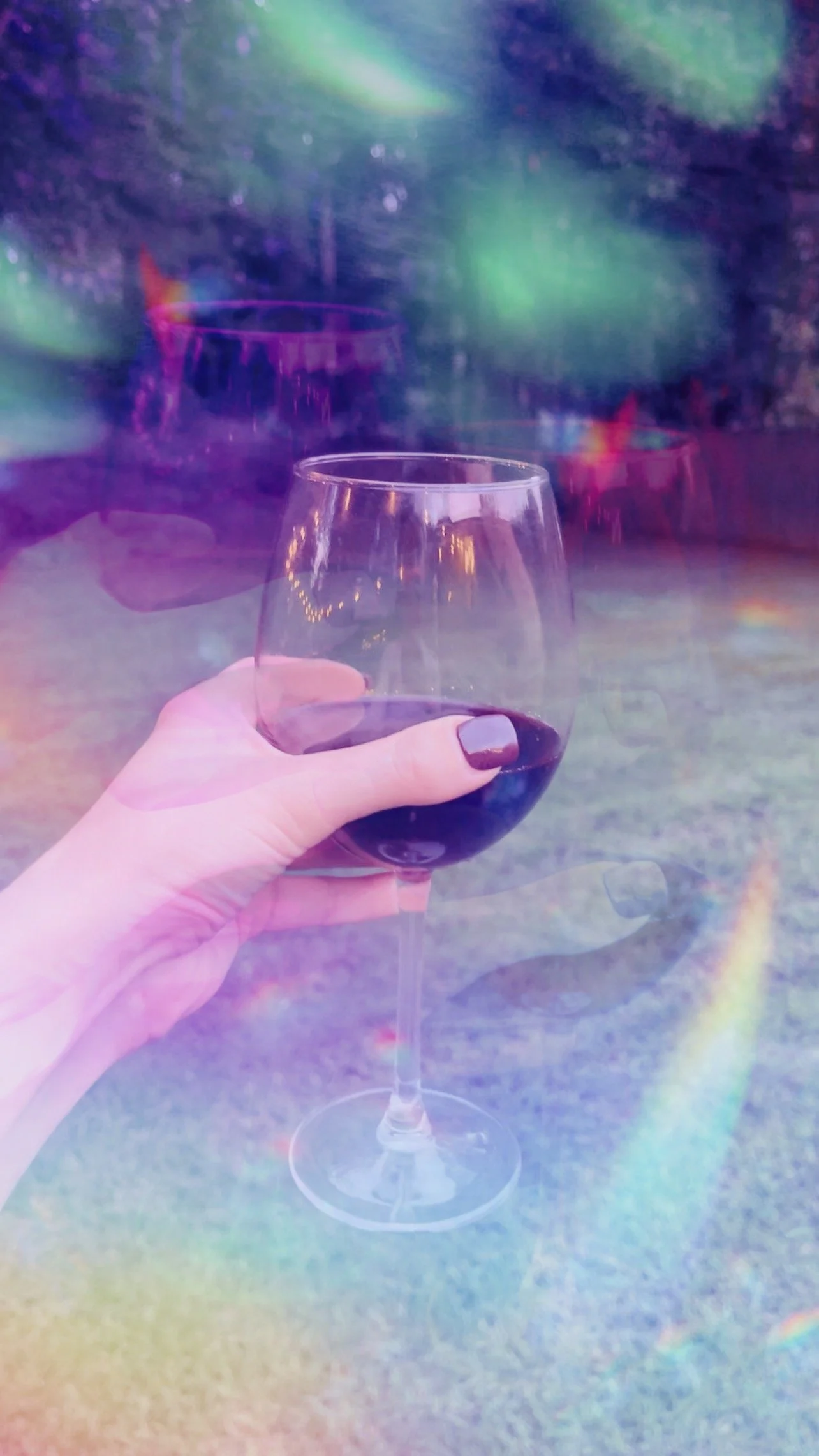My journey from gray area drinking to alcohol-freedom
Do you wish you had a different relationship with alcohol?
Do you worry about your drinking?
Have you ever wished alcohol just didn’t exist?
Does thinking about alcohol take up more space in your mind than you would like?
Do you yo-yo back and forth between not drinking at all, and overdoing it?
If you answered yes to any of the questions above, you are not broken, and you are not alone. You may be a gray area drinker (like I was!)
I experienced all of the above and more. But it was mostly a silent struggle. To the outside world, I didn’t look like someone who was struggling with Alcohol Use Disorder.
I didn’t drink in the morning. I didn’t even drink every night! Day-drinking was reserved for vacations and special occasions. Everyone drinks most weekends, and sometimes they drink too much, right? It sure seemed like it from where I stood.
And to make things even more confusing, I could easily stop after one or two drinks. Which led me to the conclusion that I couldn’t be an alcoholic. I believed I just needed to apply more rules and discipline.
But other times, it was like a dark passenger took over. I didn’t want to stop after one, two or three drinks. When I binge drank, it was intentional. It’s not that I couldn’t stop, I didn’t want to. I didn’t understand why I had developed this toxic behavior, but I knew it was super unhealthy and I had to stop. It was creating more and more anxiety as I entered my mid-thirties.
My relationship with alcohol seemed normal for many years. Alcohol use disorder is progressive. If you have noticed your drinking getting weirder or more confusing, that’s worth paying attention to.
My occasional binge drinking was my dirty secret, but one that I hid pretty well. I wasn’t embarrassing myself, or putting myself in dangerous situations. I trusted myself when I was drinking.
I spent years convincing myself “it wasn’t that bad” and that I had it under control. And yet, I couldn’t shake the feeling that my drinking habits were holding me back from my full potential. I could live with hangovers, but that truth was something I wasn’t willing to live with any longer.
Alcohol Use Disorder isn’t black and white. And it is progressive.
I knew I was in trouble once I started to recognize within myself that I was finding more and more excuses to have a drink.
I good day! A new client. A finished project for work. A bad day. An unpleasant conversation. An argument. A birthday! A funeral. A baby shower. A wedding. A visit with family. Girls night. Gays night. Date night. Comedy shows. Vacations. Concerts. A bad breakup (are there good breakups? ha!) Doing something creative, like painting or playing piano. Renovating my fixer-upper…
And boredom. Boredom was one of my biggest triggers. When I was a drinker, I couldn’t stand being bored, and alcohol provided instant relief. Because in reality, the main thing alcohol does is slow down your brain and cognitive functions. And when your brain is slowed down, it doesn’t take very much to be entertained.
On top of that, I used alcohol to self-medicate for anxiety, which I know now actually only makes it much worse. (Live and learn!)
So you see, clearly I had developed a psychological dependency on alcohol. I was almost always looking for a “reason” to drink, because I had taught myself I could rely on it to “improve” any situation — or at the very least, change the way I felt.
I can see now that this is the early stage of addiction. For most, alcohol use disorder doesn’t develop overnight.
I had no interest in seeing what “rock bottom” would look like on me. No fucking thanks.
To make matters worse, alcohol lies to you in your own voice. Booze was my fake best friend, my sneaky copilot.
And can you blame me? Drinking alcohol set off fireworks in my brain. I learned only recently that drinking doesn’t feel this way for everyone, and is likely due to the fact that I have ADHD. (An ADHD brain doesn’t produce as much natural dopamine as a neurotypical brain. Individuals with ADHD are statistically far more likely to struggle with alcohol use disorder and/or substance abuse. Why isn’t this taught in school?)
For me, a few drinks could take something mundane (like deep cleaning the bathroom) from blah.. to a little one person PARTY! I could make pretty much anything fun with the right amount of alcohol.
And experiences that were already inherently fun? I truly believed alcohol only made them better, more fun, and more special.
Here’s the problem.
All this fun I’m describing, it isn’t real. It’s nothing more than a handful of complex chemical changes in your brain, which lasts about 20 minutes before wearing off. Then you feel worse than before you drank in the first place, and the quickest and easiest solution is to drink more.
I was borrowing from tomorrow’s well of happiness for today, and when you do that over and over again, eventually that well runs dry.
Why? Because alcohol alters the chemistry of your brain. Both when you are drinking it, and when you are not. Nobody talks about this. People who drink low to moderate amounts of alcohol regularly are more stressed, more depressed, and more anxious than non-drinkers. But what’s even scarier is that over time, activities that used to be fun sober (like riding a bicycle) slowly begin to lose their appeal. Alcohol is no longer just an enhancement, but becomes necessary for fun.
It wasn’t until I was about 15 years into my drinking “career” that this started becoming too obvious to ignore. And it wasn’t until I started reading “quit lit” and educating myself on the effects of alcohol on the human brain and body that I started to desire true, lasting change.
Still, it would take me me several more years and an amazing alcohol-free coach to finally become ready to release alcohol from my life for good. And it wasn’t until I started taking breaks, and then going back to drinking, that I saw firsthand how much sweeter and more vibrant my life is without booze.
I was stuck in limbo because I was certain that moderation was the key to having it all. I LOVED drinking and I didn’t want to give it up entirely. I couldn’t picture my life without alcohol. How could I possibly have fun at a wedding or on my birthday without alcohol? What would Christmas be like? (It’s way better when you are fully present! Who knew!?)
Maybe it would have taken another year or two for my drinking to ruin everything I cared about, maybe another ten. It didn’t matter. What I knew for sure was that I had no interest in watching my life burn to the ground slowly while I held a fire extinguisher in my hand. I wanted to quit while I still felt in control.
So I decided, after a period of depression accompanied by way too much rosé, I was ready to give sobriety a real chance. I had given alcohol and moderation a million chances, and it wasn’t working. I felt just as stuck (and as sick) as ever. The definition of insanity is trying the same thing over and over, expecting a different result. I knew I had to see what was up on the other side.
It turns out alcohol-freedom is the real magic pill.
Quitting drinking sucks in the beginning, but once you get past the initial discomfort of withdrawal, your brain heals. And it doesn’t even take very long!
Neuroplasticity is amazing. Over time, your mind recalibrates as you develop new neuropathways and you stop thinking about and craving alcohol. For me, this process took about 3 months. That’s it!
I started to notice beauty in the everyday. I developed a childlike wonder for things I had stopped noticing when my brain was regularly anticipating the false reward of a drink. Things like fireflies, the smell of fresh flowers. Putting up a Christmas tree is magical all on its own. A great first date? Connection with clarity.
My confidence has skyrocketed. I keep every single promise I make to myself.
My body rewards me with energy, luscious sleep, peak physical fitness and a gut that works the way it should. No more mystery stomach aches or waking up at 3am with anxiety.
My relationships continue to improve. My mood is elevated, almost all the time. It has become easy to say no to situations I don’t want to be in. People pleasing seems much less important, because I am pleased with myself. I have become my own best friend, and alone time is exciting instead of lonely.
Mornings don’t suck anymore. My workouts are a celebration of what my body can do, instead of a punishment. I am in the best physical shape of my life, by a landslide.
Life is more intense, more vibrant, more fun, and more exciting. Of course it is—I am no longer numb.
I sometimes have dreams that I drank, and then I wake up bursting with gratitude for my sobriety. Each day I am in awe that I figured out how to become un-stuck, and it feels like I have a second chance at life.
Because if you struggle with alcohol in any capacity, you are always one decision away from a totally different reality. You don’t have to label yourself an alcoholic, or reach any sort of rock bottom to make a change. There is no qualification for sobriety.
But you do have to be ready. Nobody can tell you it’s time, you have to get there on your own, and it’s a decision only you can make for yourself. I want to help you figure it out.
With love,
Coach Gretchen
5X Certified Alcohol Free Life Coach
info@thepinkcloudcollective.com










I bet #21 will surprise you!